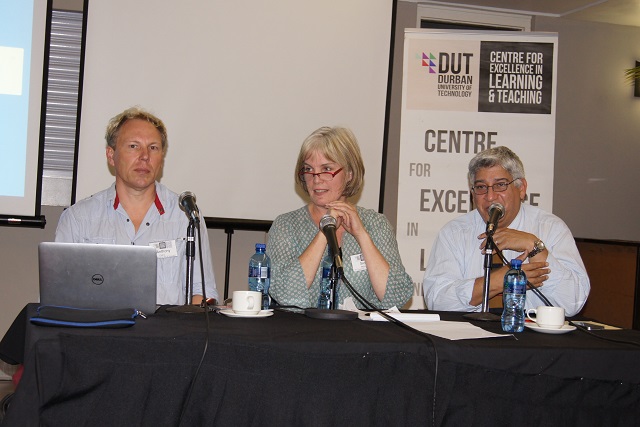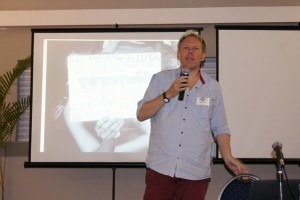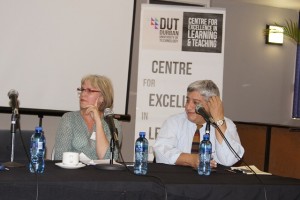In light of the recent student protest action at universities around South Africa and its significance for teaching and learning, an important panel discussion, which formed part of the 4th Learning, Teaching and Assessment Symposium at the Durban University of Technology (DUT), took place at Ritson Campus yesterday, Thursday, 29 October 2015.
The panel discussion also went live with a Twitter feed that allowed people to comment @itls2015.
The recent Fees Must Fall (#FeesMustFall) is a student-led protest movement which originally began as the Rhodes Must Fall (#RhodesMustFall, @RhodesMustFall) protest movement, that began on 9 March 2015. It was originally directed against a statue at the University of Cape Town (UCT) that commemorated the life of Cecil John Rhodes.
The campaign for the statue’s removal received global attention and on 9 April 2015, the statue was removed.
This led to a continuation of the Fees Must Fall movement which began on 14 October 2015. It has historical significance, as it became a platform for the strong voices of students protesting against hikes in tuition fees that they felt were unreasonable.
Protests started at the University of Witwatersrand and spread to the University of Cape Town and Rhodes University before rapidly spreading to other universities across the country.
Social media sites, headed by Twitter, came out as the main platform on which the protests were discussed at length, with the hashtag #FeesMustFall dominating the site for days and turning into a symbol for the cause.
According to an analysis done by Novus Online, it showed that there were 99.3% of posts regarding the protest campaign, posted on Twitter. On 23 October 2015, President Zuma announced that there would be no increase in university fees in 2016, but despite his announcement, students have vowed to continue with the protests.
The panel discussion, featuring Prof Ahmed Bawa (Vice-Chancellor and Principal, DUT), former DUT staff member Prof Sioux McKenna (Centre for Higher Education, Research, Teaching & Learning Rhodes University) and Prof Anthony Collins (Journalism Department, DUT), looked at the significance and implications of the recent Fees Must Fall movement, as well as access, transformation and ways to sustain quality education.
Starting the discussion, Prof Collins said that when we looked at why the student movement had occurred, we could see that the young, educated population had started to question the existing socio-political order.
“When we look at the South African debate of why this has happened, there are key issues which are highlighted, the first being the historical inequalities of races; for example, the race of the professors (professor representatives), as well as what has been taught at the University of Cape Town, has fundamentally not changed,” he said.
Prof Collins also said that there had been a shift in universities towards more private enterprises, with interests significantly in the branding and financial management which had fundamental effects, especially on social good.
Prof McKenna commented that the Fees Must Fall movement was simply more than about fees and we needed to see it its broader critique, as it questions the idea that the universities simply fulfilled industry’s needs.
Adding to the conversation, Prof Bawa said that the standard NSFAS funding system was not working, and not for its lack of trying. He said that institution funding over the last five years had been falling and somehow universities had to make up that gap.
“I agree fully that in a country like ours there are high inequalities and our one purpose should be for the reduction of inequalities,” he said.
Prof Bawa suggested looking into the possibility of public funding.
“My suggestion is that we should campaign for a general taxation to cover costs of education and also seriously think of graduate taxation,” he said.
After much debate and deliberation, Prof Bawa summed up the discussion, adding that we needed to find more creative ways to shape our universities.
Pictured: Prof Anthony Collins, Prof Sioux McKenna and Prof Ahmed Bawa, discussing the significance of the FeesMustFall movement, at the panel discussion.
–Waheeda Peters




